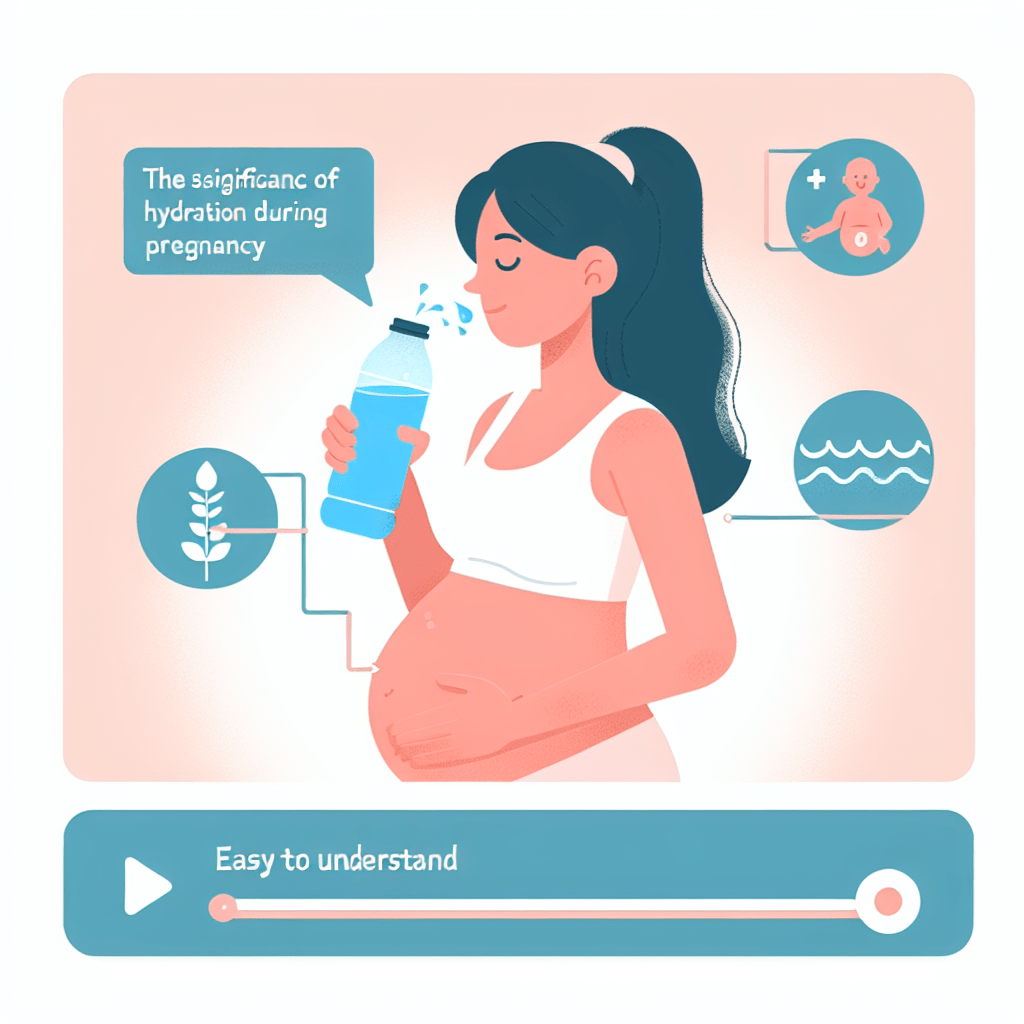Hydration in pregnancy

Hydration in Pregnancy: A Comprehensive Guide
Pregnancy is a transformative period in a woman's life, marked by numerous physiological changes that demand special attention to health and wellness. One critical aspect of maintaining a healthy pregnancy is ensuring adequate hydration. Proper hydration supports the growth and development of the fetus, helps manage common pregnancy symptoms, and contributes to the overall well-being of the mother. This article delves into the importance of hydration during pregnancy, the benefits it offers, and practical tips for maintaining optimal fluid intake.
The Importance of Hydration During Pregnancy
Hydration plays a pivotal role in pregnancy for several reasons. First and foremost, water is essential for the formation of amniotic fluid, which surrounds and protects the baby. It also aids in the production of extra blood volume required to supply nutrients and oxygen to both the mother and the developing fetus. Additionally, proper hydration helps in the efficient functioning of the kidneys, which are responsible for filtering waste products from the blood.
Benefits of Staying Hydrated
Staying well-hydrated during pregnancy offers numerous benefits:
- Regulation of Body Temperature: Pregnant women are more susceptible to overheating due to increased metabolic activity. Adequate hydration helps regulate body temperature and prevents heat-related issues.
- Reduction of Common Pregnancy Symptoms: Drinking enough water can alleviate common pregnancy-related discomforts such as constipation, swelling, and urinary tract infections.
- Improved Digestion: Water aids in digestion and helps prevent constipation, a common issue during pregnancy.
- Healthy Skin: Proper hydration keeps the skin hydrated and can help reduce the risk of stretch marks.
- Prevention of Dehydration: Dehydration can lead to serious complications such as preterm labor and low amniotic fluid levels. Ensuring adequate fluid intake is crucial for avoiding these risks.
How Much Water Should Pregnant Women Drink?
The general recommendation for water intake during pregnancy is to drink at least 8-10 cups (64-80 ounces) of water per day. However, individual needs may vary based on factors such as activity level, climate, and overall health. It's essential to listen to your body and drink whenever you feel thirsty.
"Pregnant women should aim for at least 10 cups of fluid daily." - American College of Obstetricians and Gynecologists
Signs of Dehydration
Recognizing the signs of dehydration is crucial for preventing complications. Some common symptoms of dehydration include:
- Dark yellow urine
- Dry mouth and lips
- Feeling dizzy or lightheaded
- Headaches
- Fatigue
- Decreased urine output
If you experience any of these symptoms, it's important to increase your fluid intake and consult your healthcare provider if the symptoms persist.
Tips for Staying Hydrated
Maintaining adequate hydration can be challenging, especially with the increased demands of pregnancy. Here are some practical tips to help you stay hydrated:
- Carry a Water Bottle: Keep a reusable water bottle with you at all times to remind yourself to drink water throughout the day.
- Set Reminders: Use smartphone apps or set alarms to remind you to take regular sips of water.
- Infuse Your Water: Add slices of fruits, vegetables, or herbs to your water for a refreshing and flavorful twist.
- Eat Water-Rich Foods: Incorporate foods with high water content, such as cucumbers, watermelon, and oranges, into your diet.
- Monitor Your Urine: Keep an eye on the color of your urine. Light yellow or clear urine is a good indicator of proper hydration.
Hydration and Exercise
Exercise is an important aspect of a healthy pregnancy, but it also increases the body's need for fluids. When engaging in physical activity, pregnant women should ensure they drink water before, during, and after exercise to stay hydrated. It's also advisable to avoid exercising in extreme heat and to wear breathable clothing to prevent overheating.
<



